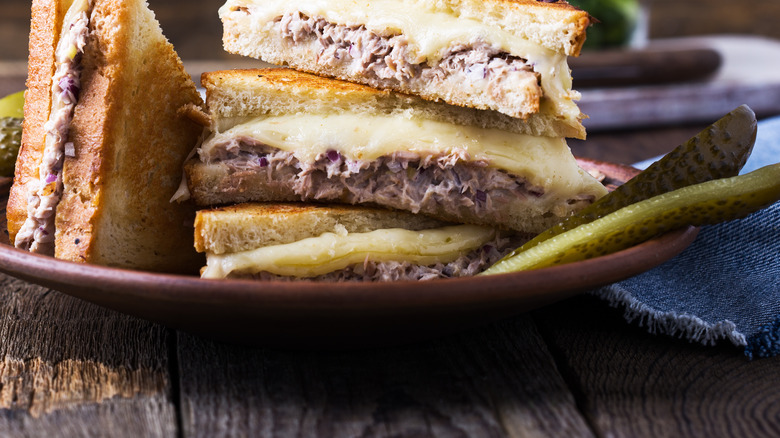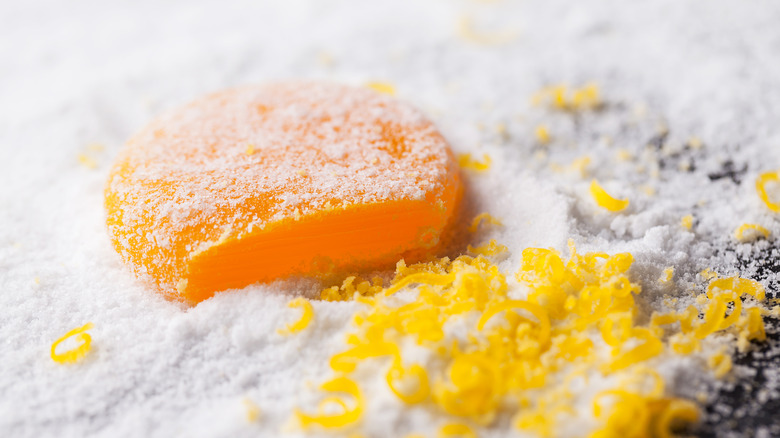If Cheese On Tuna Isn't Your Thing, Grated Egg Yolk Might Be
Are you a firm believer that seafood and dairy should never mix? Contrary to what you might think, this doesn't limit your culinary options. In fact, being anti-cheese when it comes to tuna-based dishes opens up a whole new window of creative opportunity. While you might be racking your brain as to which ingredients can deliver flavor and provide that same dimension of richness to recipes like fresh tuna salads and toasty tuna melts, the answer lies in grated egg yolk.
In its most basic form, tuna salad consists of canned fish with a generous dollop of mayonnaise. What elevates the recipe is all the add-ins, seasonings, condiments, and even bread choices. Of the many ingredients that could make an appearance, cheese is one addition that can drastically affect taste and texture. Adding a bit of funk and creaminess can be the missing puzzle piece when crafting the best tuna salad. But, if you can't eat dairy or prefer not to, swap the cheese for egg yolks — stay with us on this.
Much like funky cheeses, egg yolks are a great source of umami as they possess a flurry of amino acids, which are the origin of umami and what our taste buds perceive as savory goodness. The only difference is that unlike aged cheeses that may harden and create a less-than-ideal texture when paired with delicate tuna is that egg yolks maintain a velvety texture, especially when cured.
Grated and salt-cured egg yolks
Grating eggs isn't a new concept, but it is one that we love particularly when looking to add flavor in an inventively coy way. Yet, rather than simply grate an entire boiled egg into tuna sandwiches and melts, seeing as most umami hides in the yolks, it's best to work strictly with the colorful centers and prepare them in a way that only heightens their umami. What better way to do that than by salt-curing them?
Though it might sound intimidating, the process is fairly straightforward. After separating the egg whites from the yolks, line a tray with kosher salt and make little pockets for the egg yolks to rest. Once the yolks are gently added to the salt boroughs, they should be delicately covered in more salt and left to rest in the fridge for several days until they become firm. Brushing off the salt, the now-solidified, umami-concentrated eggs should continue to dry for a day or two, before gracing tuna salads.
Full of salty and savory flavor, the finished salt-cured eggs provide a smooth and luscious quality that rivals even mayonnaise. Plus, the yolks also add a subtle pop of color — especially if you decide to marinate eggs in soy sauce or miso. Whether you decide to slice them, shave them, or grate the yolks is entirely up to you, however, we find that grating means a better diffusion of umami inside your sandwiches. Happy curing!

